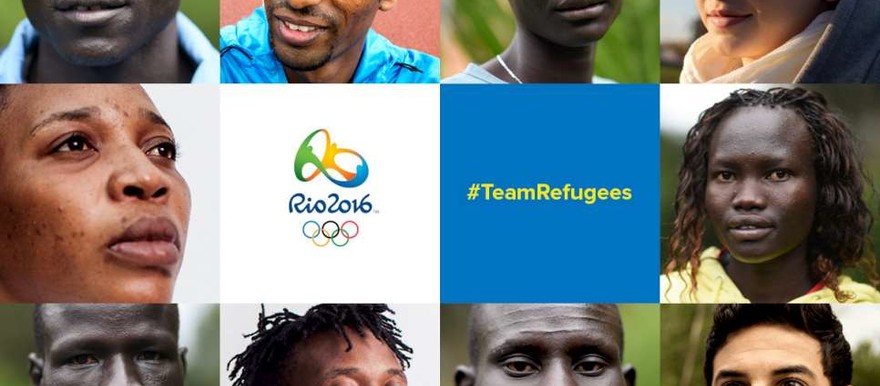Five South Sudanese athletes will compete in the 2016 Olympic Games in Rio de Janeiro, Brazil as part of a ten-person team of refugees, the United Nations refugee agency (UNHCR) announced.
All five South Sudanese athletes currently live and train in Kenya. They were selected from 43 applicants to the “Team Refugee Olympic Athletes,” the first team of refugees in Olympic history, according to the International Olympic Committee.
Rose Nathike Lokonyen, 23, will compete in the women’s 800 metre race. “I will be representing my people there at Rio, and maybe if I succeed I can come back and conduct a race that can promote peace, and bring people together,” she said.
Paulo Amotun Lokoro, 24, will compete in the men’s 1500 metre race in Rio. “I want to be a world champion,” he told UNHCR. “I know I am racing on behalf of refugees. I was one of those refugees there in the camp, and now I have reached somewhere special. I will meet so many people. My people will see me on the television, on Facebook.”
Yiech Pur Biel, 21, fled fighting in southern Sudan in 2005, and will compete in the men’s 800 metre event.
“In the refugee camp, we have no facilities – even shoes we don’t have. There is no gym. Even the weather does not favour training because from morning up to the evening it is so hot and sunny,” he said.
“I focused on my country, South Sudan, because we young people are the people who can change it,” he added.
The other South Sudanese members of the refugee team are Anjelina Nadai Lohalith, 21, who will compete in women’s 1500 metres, and James Nyang Chiengjiek, 28, for the men’s 800.
The five athletes will be among the first South Sudanese citizens to compete in an Olympic games. In the 2012 London games, South Sudanese athlete Guor Marial ran the marathon under an Olympic flag because South Sudan had not yet joined the IOC.
In 2015, South Sudan joined the IOC. Sports officials in Juba have said they will send athletes to Rio to compete under the South Sudanese flag.
The rest of the refugee team comprises athletes from Syria, Ethiopia, and Democratic Republic of Congo.




